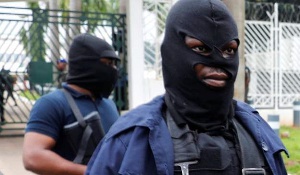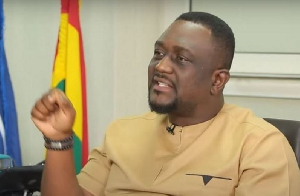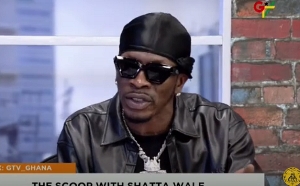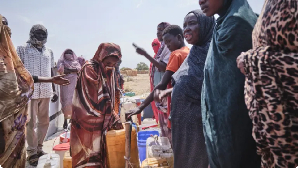By Dr. Michael J.K. Bokor Monday, January 9, 2012 It might not be for nothing that the South African government invited former President Jerry Rawlings and the government of Ghana to participate in activities marking the centenary of the African National Congress (ANC). Whether he was invited in his private capacity or not, Rawlings will definitely be representing the interests of the country as its former President whose party is in power. Both the ANC and the NDC are the products of “positive defiance” against the status quo, and Rawlings’ participation is in place. One may not want to question the rationale behind the separate invitation to the Government of Ghana to participate in the celebration too. After all, such an event couldn’t be genuinely completed without the involvement of Ghana in it. The records reveal how much Ghana contributed to the liberation struggle in South Africa and the other countries under oppressive colonial rule in the 1960s (Namibia, Mozambique, etc.) in the reign of the Great Osagyefo Dr. Nkrumah. These two different “faces” represent one political party but are on different wavelengths. They are in South Africa, manifesting the paradox that is stifling the NDC as a result of the bad-blood relationship that exists between the Mills-led government and the Rawlings faction. For them to converge at this event—each side nursing its own set of peculiar grievances against the other, fuming with rage, and looking for the least opportunity to explode at the poke of a finger—is worrisome. Doubtless, their presence at this celebration goes beyond the symbolic. It poses serious challenges in party building.
It also opens to question their own attitude to politics and what they can do to leave behind a political force to be reckoned with and celebrated long after their death. That was the driving force behind what the founding fathers of the ANC did and handed down to others who managed to sustain the party to date for its centenary to be celebrated. Will Rawlings and the government see these challenges and tackle them without any further worsening of their party’s situation? The ANC couldn’t have survived had it been subjected to the kind of destruction that the antagonism between the Rawlings faction and its counterpart in the Mills-led government are wreaking on the NDC.
The ANC has run a long, tortuous, and perilous course to be where it is today as the ruling party of South Africa. Its formation in 1912 was a culmination of the struggle against colonialism and the bringing together of a tribal resistance into a common, national struggle against international imperialism and national oppression. Most of its “Umkhonto We Sizwe” soldiers like Solomon Mahlangu were executed during the apartheid regime in Pretoria. Nelson Mandela’s 27 years in solitary incarceration is not in vain. The ANC has been ruling South Africa since 1994 when Mandela became the first Black South African President to be elected in a fully representative democratic election. It is likely to maintain its firm grips on the governance of the country for as long as its African supporters remain the largest segment of the country’s population and root for it; for as long as its administration sticks to the ideals for which the ANC fought and liberated the country from the clutches of Apartheid; and for as long as its main players work together under a common banner of the ANC to make the population see the difference between it and the racist Apartheid Nationalist Party’s rule. More importantly, the ANC is likely to continue controlling the affairs of the country for as long as its leaders put their house in order. We can tell from the swift action taken against Julius Melema, the former youth leader, and others before him whose conduct fell foul of the principles of the organization that the ANC is built on a solid rock. And I have in mind former President Thabo Mbeki and Mrs. Winnie Mandela who lost favour despite being high-ranking officials.
The ability to enforce internal discipline and to ensure that all members account for their stewardship and don’t do things anyhow is one major hallmark of the ANC. It is one of the main factors that have sustained it thus far. An organization that outlines its principles and strictly adheres to its own internal arrangements will endure because it cannot be easily subverted from within. The ANC has the capability to clean itself, which teaches an important lesson.
We wish the zeal with which Rawlings and the government’s delegation approached this celebration of the ANC’s life will be put to good use in ensuring the viability of their own political force back home. It is shameful for them to dash off to South Africa to celebrate the life of the ANC while tearing each other apart in a political movement that can also be nurtured to grow as the ANC has done. Not until they recognize the destruction that their petty rivalry and irresistible tendency for mischief has wreaked on the NDC and all that it stands for, they will continue to celebrate other people and political forces’ success story and be damned over their own failures at home.
It is unbecoming of them to close their minds to the harm that their intransigence is causing the very house that their often-touted principles of “probity and accountability” undergird. In effect, by being intransigent and unyielding, they can’t accommodate each other nor yet come together to realize the objectives of the uprising that launched their political career. They are operating at cross-purposes to the advantage of their political opponents who will not hesitate to “kill” the NDC.
We know the origin of the NDC and can say for sure that it will be reduced to an empty shell if shorn of those principles and pegged on an individual’s political ambitions. Unfortunately, those among the NDC’s functionaries who have taken hardline positions seem not to know how damaging their stance has been all along. Those of them who think that they constitute the bedrock of the party and that the party cannot do without them are pitiable.
As they gloat over the accomplishments of the ANC, shouldn’t they cast their minds back to find out how many of those founding fathers of the organization bulldozed their way through to demand that it be pegged on their worldviews or aspirations alone? Shouldn’t they find out if any of those ANC stalwarts ever wanted the party to reflect his peculiar ideals or to be given the pad to carry the organization on his shoulders all by himself? Most of those who formed the ANC are long dead and gone; but the ANC still stands tall and won’t be deflected from its chosen ideology or strategies for accomplishing its stated objectives because it is viable. Those founding fathers are remembered because they stood firm against what the ANC itself staunchly opposed. They laid down their lives in the fight to realize the ANC’s aspirations, not to imprint their images or personal interests on it to be upheld as the prime-movers. Or to pit their strength against others’ weaknesses as if that strength isn’t just an accident resulting from those very weaknesses! All in the ANC worked harmoniously together and those who ended up paying the ultimate price are the cynosure of attention today that the organization is 100 years old. They will forever be remembered for their selfless devotion to the cause of the oppressed Black Africans in South Africa, especially, and all others unjustifiably alienated and chosen for particular victimization and dehumanization by the obnoxious Apartheid system, generally.
The NDC’s history may not be equated to that of the ANC, especially in the context of the latter’s protracted armed resistance against the Establishment. But both have some similarities at many levels, especially in terms of the principles behind their formation and in the pursuit of their objectives to ensure equity and justice for the marginalized segments of the population. That’s why the NDC still appeals to the common Ghanaian who would have continued to be the underdog, to be sidelined in local and national politics and consigned to a life of misery, want, and miserable death, had the June 4 Uprising not occurred.
The explosion that was to give rise to the NDC might have its excesses but they don’t negate the merits of the event. The NDC has established itself as a formidable political force, having dislodged the Convention People’s Party and the Danquah-Busia political culture that had remained the two main forces in Ghana politics prior to the Rawlings Movement. Today, both the CPP and Danquah-Busia political parties are scared stiff at the mention of the NDC. They have been doing all they can to discredit, demonize, and undercut it, but the going is tough for them, which suggests that the NDC can’t be easily neutralized by their intrigues. What will undo it, however, is the internal wrangling and factionalism that has eaten deep into its fabric to such an extent as to threaten its future as Rawlings and the President Mills faction tear at each other. Despite the successful Sunyani Congress in July 2010, the party is still divided because of this factionalism and the hardline position taken by the main players. We know how difficult it has been to repair this harm and restore sanity into the party’s affairs. Then again, the persistent vilification of the government by Rawlings, his wife, and their spokesmen continues to deepen the gulf, opening many fault lines and making the party horribly vulnerable. With the general elections gradually drawing near, the failure to repair the house will definitely be capitalized on by the party’s opponents. Added to public concern about the government’s inability to deliver the goods, we shouldn’t expect the President and Parliamentary candidates of the party to coast through to remain in power. Considering the challenges facing the NDC at this juncture, it is only when its leaders act with caution and aim only at pooling resources together to repair relationships that the party can be rebuilt to withstand the pressure that its opponents will put on it. Not until it is repaired, this political house can’t successfully face the vagaries of the electioneering campaigns. Then, if it loses power, it risks not being able to regain its balance. The momentum for party work will vanish as the key players seek safe havens elsewhere. Those who fought hard for eight years to keep the party on its feet to enable it to regain political power may not be willing to sacrifice their lot again. In that sense, who will expect the NDC to remain viable? If it does fail to be viable, it will gradually wither away and not be worth celebrating in any way. It may be remembered only as an experiment in political jingoism. The centenary celebration of the ANC’s life should sound the clarion call for the NDC to tackle its challenges so that it can also grow into a much better political force than what it is now to be celebrated many years after its founding father(s) and crop of activists leave the scene. It is better for them to work to be appreciated by posterity than to focus on instant gratification and kill their own baby.
I hope Rawlings and the government delegation will return home with better ideas to know where the line has gone crooked and to straighten it for the growth of their own party. They shouldn’t just join others to celebrate the ANC’s life while snuffing out the life from their own political party, which has the potential to grow too ad infinitum if properly handled. They have it as their bounden duty to sustain the NDC as a giant in Ghanaian politics. They can do so only when they look beyond their personal ambitions and invest their lot in genuine party work. Will they listen and act as such for the NDC to grow?
Opinions of Wednesday, 11 January 2012
Columnist: Bokor, Michael J. K.














